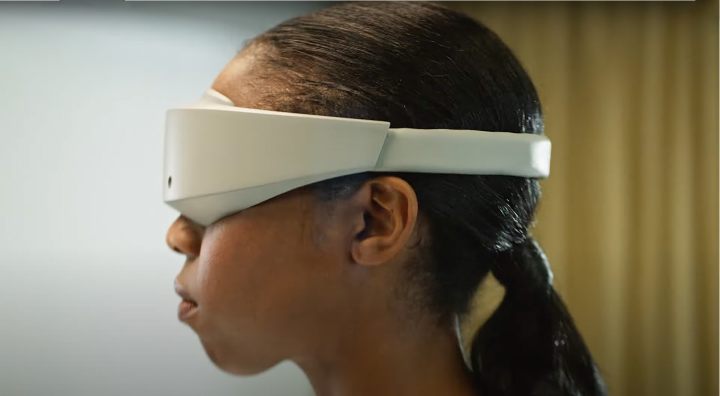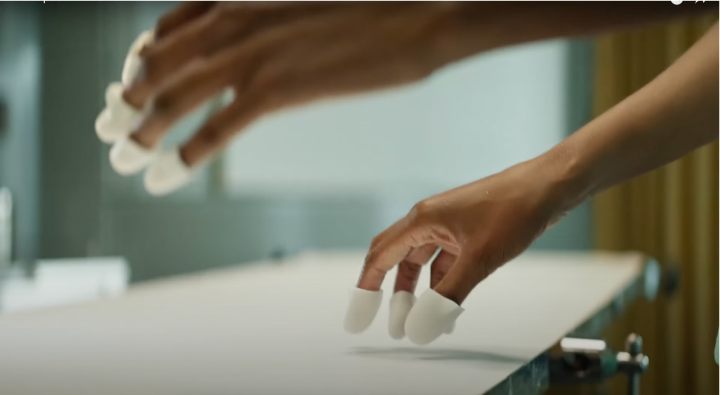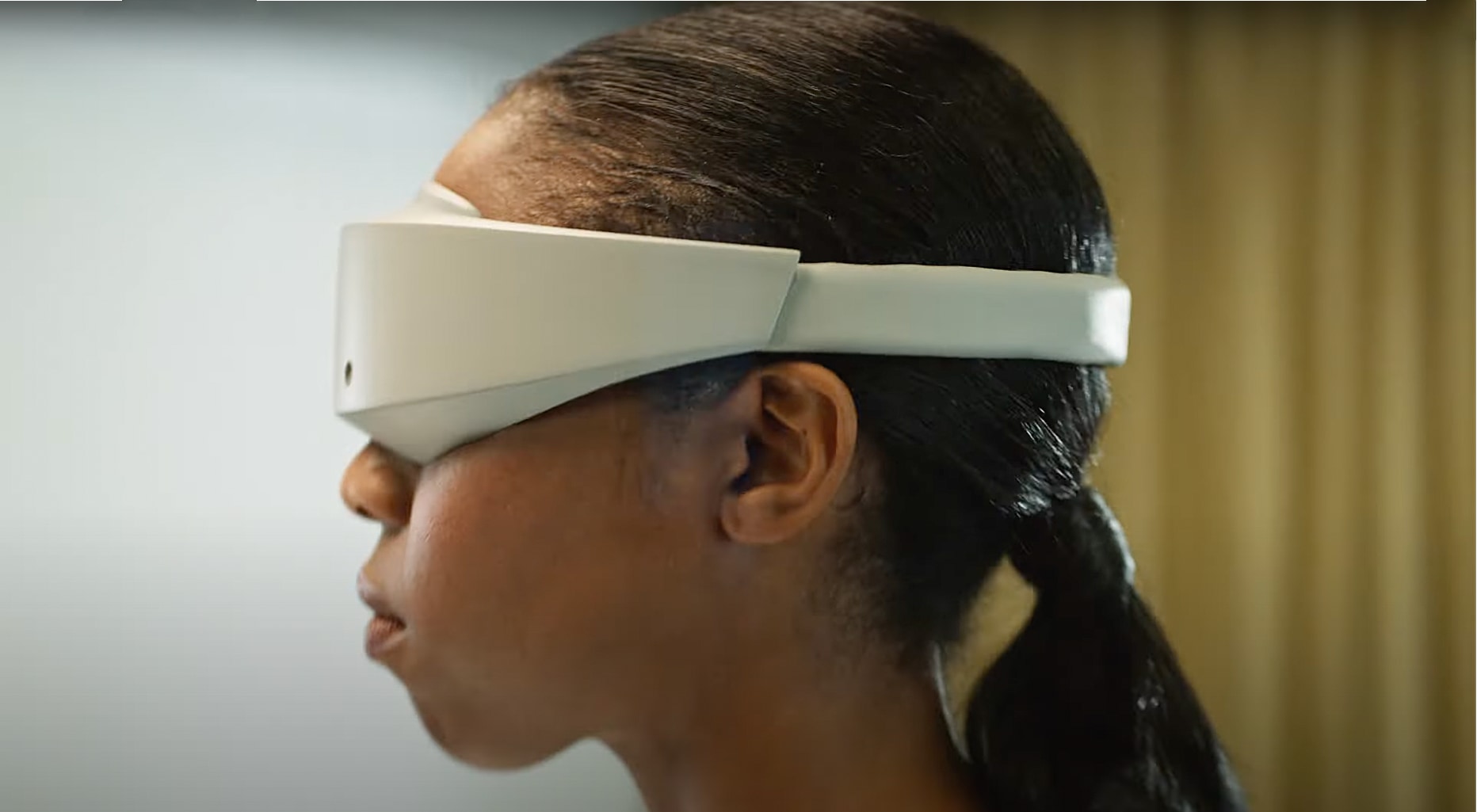Meta recently previewed a futuristic-looking VR headset concept in a metaverse promotional video. There’s no confirmation that this is an actual product in development, but the new device is clearly much more advanced than a Quest headset and even slimmer than the upcoming Cambria headset.
Fingertip sensors are also shown and might help to quickly identify finger location with great precision, as well as provide haptic feedback.

These glimpses of the future were found as part of Meta’s pattern of posting a few videos each month that represent some near-term hardware and others a bit further out to future VR headsets.
In the most futuristic video, Meta imagines a time when the metaverse might have rendering quality that’s indistinguishable from reality, or perhaps, the company simply took artistic license. There’s little doubt that this will be possible someday but hard to say when that might come to pass. Three practical examples of the metaverse were given in the video.
When attending a lecture that’s accessible via the metaverse, students will be able to either be physically present or teleport into a seat and the professor can manipulate virtual 3D objects such as a biological cell to discuss its metabolism. The cell can be tossed to a student and examined more closely as it’s in the process of dividing.
A bit further in, a medical student practices for surgery on a virtual patient using an advanced VR headset and fingertip sensors that might provide greater precision and haptic feedback. This type of training, which can be repeated hundreds or thousands of times, would be very useful before moving on to cadavers for hands-on experience.

Finally, Meta’s concept video demonstrates history coming to life with modern students visiting ancient Rome and watching Mark Antony engage in a debate over the flaws and merits of Julius Caesar as a ruler. The students can walk around and examine the scene as if actually there.
Another video illustrates the current state of VR and how a father and daughter can connect while fishing despite being separated by nearly 2,000 miles. Meta didn’t identify the app, however, it appears to be Real VR Fishing, a multiplayer fishing simulation that’s available right now for Quest and Quest 2 VR headsets for $20. That’s right, the metaverse is already here in some respects.
While the potential of the future metaverse is certainly very enticing, plenty of work must be done before this vision becomes a reality. The early versions of classrooms, hands-on training, and historical locations already exist in various apps and are well done within the limitations of the current hardware. The near future and what will become possible with more advanced headsets remains to be seen.
The wait won’t be long since Meta’s Cambria, a more expensive VR headset, is expected later this year. It will be interesting to see how well Meta’s Cambria can render the early metaverse and how immersive the experience might be.
Editors’ Recommendations
